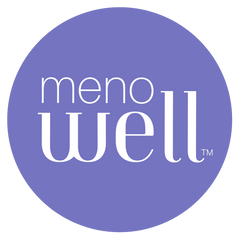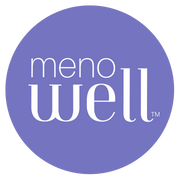Protein or Fiber? What Matters Most in Menopause

When you think about nutrition during menopause, two words almost always come up: protein and fiber. Both are important, but is one more valuable than the other? The truth is, they play very different—yet equally powerful—roles in your health. Let’s break it down in a way that’s simple, practical, and easy to use in everyday life.
Why Nutrition Matters More in Menopause
Menopause is a natural stage of life, and while it comes with big hormonal changes, it’s also a chance to re-focus on how food fuels your body. During this time, many women notice shifts in energy, sleep, mood, digestion, and metabolism. What you eat won’t “fix” menopause, but it can make a real difference in how steady, satisfied, and strong you feel.
That’s where protein and fiber step in. Both are essential nutrients, but they work in very different ways.
The Case for Protein
Protein is often called the building block of the body. It supports muscles, bones, skin, and more. During midlife, protein takes on an even bigger role because muscle mass naturally declines with age. Less muscle can mean feeling weaker, having a slower metabolism, and noticing more changes in body composition.
Getting enough protein helps you:
-
Stay stronger and more energized
-
Support recovery after exercise
-
Maintain a healthy metabolism
-
Feel fuller longer after meals
It doesn’t mean you need to load up on giant steaks or protein shakes. Instead, think about adding smaller amounts of protein consistently throughout your day: nuts, beans, lentils, tofu, tempeh, eggs, fish, or lean poultry are all great options.
The Case for Fiber
Fiber often gets overlooked, but it’s one of the most powerful tools for midlife health. Unlike protein, fiber isn’t absorbed into your body. Instead, it moves through your digestive system, helping everything run smoothly.
Why is fiber so valuable during menopause?
-
It keeps you feeling full and satisfied
-
It helps support healthy digestion and regularity
-
It helps keep blood sugar more steady, which can impact energy and mood
-
It nourishes your gut bacteria, which play a big role in overall wellness
Most women aren’t getting enough fiber—especially during midlife when it matters most. The daily goal is around 25 grams, but many women fall far short. Adding more plants to your plate—fruits, veggies, whole grains, beans, seeds—can help fill that gap.
Protein vs. Fiber: The Real Answer
So which is more important? Here’s the secret: both. Protein and fiber aren’t competing nutrients—they’re teammates.
Think about it this way:
-
Protein is like the sturdy framework that keeps your body strong.
-
Fiber is like the fuel system that keeps everything running smoothly.
Together, they help support energy, satisfaction, and balance during menopause. If one is missing, you’ll notice the difference.
Making It Practical
Here are a few ways to combine protein and fiber in your daily routine:
-
Breakfast: Oatmeal topped with chia seeds, nuts, and berries
-
Lunch: Lentil soup with a side salad
-
Snack: Apple slices with almond butter
-
Dinner: Grilled salmon with quinoa and roasted vegetables
And for those times when life is busy—like a rushed morning, a long workday, or traveling—having a snack that combines protein and fiber makes things simple.
Why MenoWell Bars?
That’s where MenoWell Fiber + Protein Bars come in. They’re crafted specifically with midlife women in mind:
-
The Menopause Transition Trifecta: Each bar combines plant protein, probiotic fiber, and maca, along with superfoods like flaxseed, spinach, and kale.
-
Smart Snacking: At just 150–160 calories, with 7–8 grams of protein and a good source of fiber, they keep you satisfied without weighing you down.
-
Clean Ingredients: Plant-based, gluten-free, and made with whole foods you recognize.
-
Doctor Approved: Nutritionists and physicians back their thoughtful ingredient list.
Whether you need an afternoon pick-me-up, a post-workout bite, or a quick first meal of the day, these bars give you a balanced mix of protein and fiber in one simple snack.
Final Thoughts
When it comes to midlife nutrition, it’s not protein vs. fiber. It’s protein + fiber. Both matter for different reasons, and both can help you feel more balanced, energized, and satisfied during menopause.
With small, consistent choices—whether in meals, snacks, or on-the-go options—you’ll set yourself up for strength and stability in this stage of life and beyond.
Sources
-
Harvard T.H. Chan School of Public Health – Nutrition Source
-
Mayo Clinic – Dietary Fiber: Essential for a Healthy Diet
-
National Institutes of Health – Protein and Your Health
Academy of Nutrition and Dietetics – Nutrition Needs in Menopause





